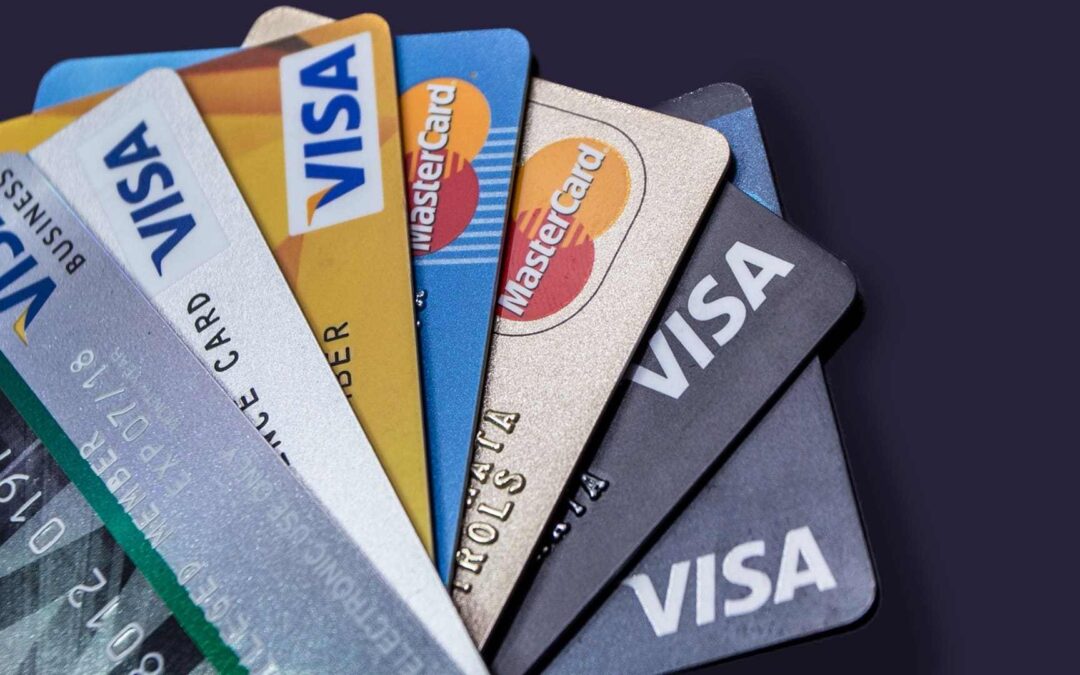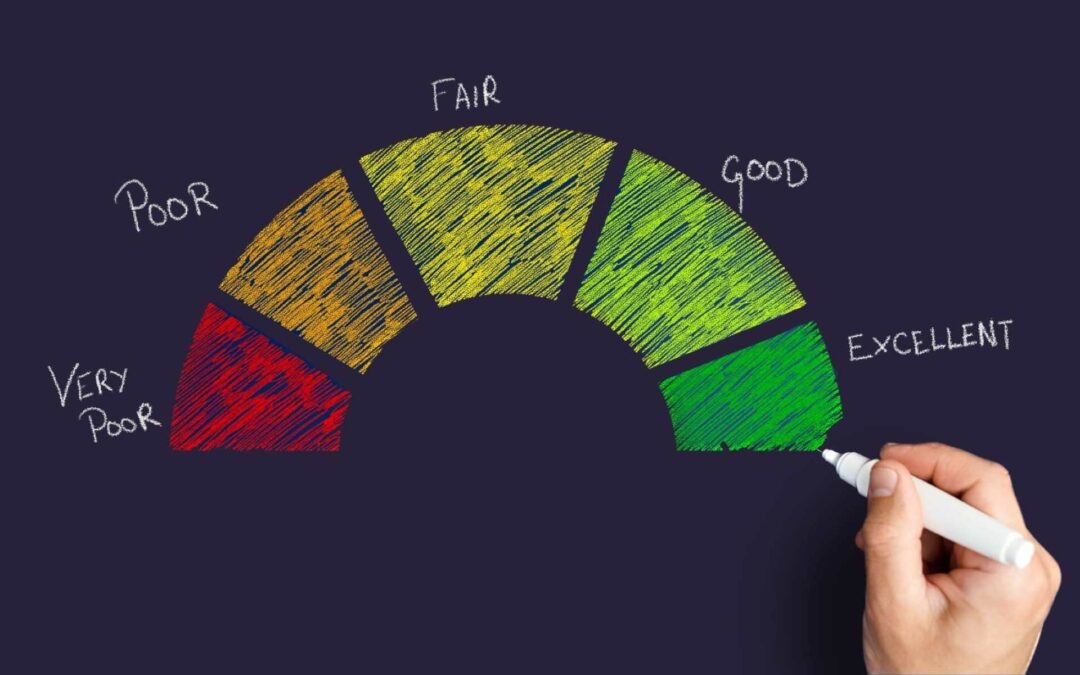
by Sathvik Nagraj | Feb 22, 2023 | Investment
Are you looking for the best debit cards in India? With so many different types of debit cards available, it can be difficult to determine which one is the best debit card in India suited to your needs.
In this article, we will discuss the various types of debit cards available in India, as well as their features and benefits.
We’ll also help you make an informed decision when selecting a card that best fits your requirements and budget.
So let’s get started by taking a look at all the best options!
Types of Debit Cards Available in India
In India, there are four types of debit cards: Visa, Mastercard, RuPay and American Express. Each of these debit cards have their own unique features and benefits.
Visa
This is one of the four types of options available in India, and is accepted by most merchants and many financial institutions.
Visa debit cards boast a variety of features, including convenience, security, acceptance at millions of locations worldwide, and more.
For added convenience, Visa debit cards provide users with the ability to access their funds anytime and anywhere.
Additionally, Visa debit cards offer fraud protection with their Zero Liability policy, meaning that cardholders are not held liable for any unauthorised purchases on their accounts.
Mastercard
Mastercard is another popular type of card in India, offering similar features to those provided by Visa.
Users of Mastercard benefit from convenience and security when it comes to accessing their accounts, as well as acceptance at millions of locations worldwide.
Like Visa, Mastercard also offers a Zero Liability policy for added protection against fraudulent purchases.
Rupay
RuPay is an Indian-based debit card network that provides users with quick access to their funds anywhere in India.
These debit cards offer features such as convenience, security, acceptance at all Indian merchants, and more.
Additionally, RuPay debit cards are accepted by many foreign banks and merchants as well.
American Express
Finally, American Express is an international payment network that provides customers with a secure way to make purchases anywhere in the world.
Like other debit cards, American Express offers features such as convenience, fraud protection, and acceptance at millions of locations worldwide.
How to Select the Best Debit Cards?
When selecting a debit card in India, there are several key features that you should consider:
Convenience
Convenience is an important factor when selecting a debit card in India. With the best debit cards, users can access their funds anytime and anywhere with ease.
Security
Security is also a major concern when it comes to choosing the best debit card in India.
Many top-tier debit cards offer fraud protection with their Zero Liability policy, meaning that cardholders are not held liable for any unauthorised purchases on their accounts.
Acceptance
Another important factor to consider when selecting a debit card in India is acceptance at millions of locations worldwide.
All four types of cards available in India are accepted at millions of locations around the world, allowing users to make purchases with ease.
Customer reviews
Finally, customer reviews and preferences should also be taken into account when selecting a debit card in India.
By reading customer reviews, you can get a better understanding of which cards offer the best features and benefits. It will help you make an informed decision when selecting the best cards in India.
Conclusion
Choosing the best debit card in India can be a difficult decision with so many options available.
However, by considering key features such as convenience, security and acceptance at millions of locations worldwide, you will be able to make an informed decision when selecting a card that best fits your requirements and budget.
Additionally, reading customer reviews is also important for understanding which cards offer the best features and benefits. With this information in hand, you’ll have no problem finding the perfect debit card for your needs!

by Sathvik Nagraj | Feb 22, 2023 | Culture & Money
Precisely, what is a CIBIL score? A CIBIL score is a three-digit number that reflects a person’s creditworthiness. It is used by banks and financial institutions to assess their credit risk. It is an important parameter that determines a person’s eligibility for loans and credit cards. The score also affects the interest rates and credit limits offered to them.
It is calculated based on a person’s credit history, which includes factors such as their credit utilization, repayment history, length of credit history, and types of credit used.
Understanding what a credit score is, how it is calculated, and how it affects your financial health is crucial in today’s world where credit plays a significant role in our lives. In this era of digital lending, having a good CIBIL score is more important than ever, and can make a significant difference in achieving your financial goals.
In this article, we will explain what a good Cibil Score looks like, how it’s calculated and why it matters. We’ll also provide tips on how to improve your score so you can achieve good financial health.
Also learn about the regulation of the Indian Stock Market here.
What is a CIBIL score?
A CIBIL Score, or Credit Information Bureau (India) Limited Score, is a three-digit numeric summary of an individual’s credit history.
It is based on the information in an individual’s credit report and is used by banks, financial institutions, and other lenders to assess the creditworthiness of an individual.
The CIBIL Score ranges from 300 to 900, with higher scores indicating good credit health and lower scores indicating a greater risk of default.
How is it Calculated?
- Your CIBIL Score is calculated based on the information in your credit report, which includes details of all your loan and credit card accounts.
- It takes into account such factors as payment history, the amount of debt you have, the length of time you’ve had credit accounts, and any collection actions taken against you.
- The score is calculated using a complex algorithm that assigns points to each of these factors. They are then added up to generate your CIBIL Score.
What Is a Good CIBIL Score?
A good CIBIL Score is generally considered to be anything above 750 or 800. This depends on the lender and type of loan.
However, even if your score falls in the good range, lenders will still consider your other creditworthiness factors. They consider some things such as income and debt-to-income ratio before approving a loan.
How to Improve Your CIBIL Score?
If your score is below 750 or 800, there are several steps you can take to improve it.
- The most important thing is to make sure all your payments are made on time.
- You should also keep your credit utilisation ratio low. Avoid opening too many new accounts or taking out too many loans.
- Additionally, you can dispute any inaccurate information on your credit report. This will reflect an accurate picture of your credit history.
The Benefits of a Good CIBIL Score
Having good credit health can open up many opportunities for you.
- A good CIBIL Score will make it easier to get access to loans and other financial services. Some of them are mortgages and car loans.
- It can also help you get better terms on these products, such as lower interest rates or longer repayment periods.
- Finally, good credit health can provide peace of mind. Knowing that you are in good financial standing and can access the credit services you need will bring a sense of peace.
Conclusion
Having good credit health is essential for ensuring good financial health. By understanding what a good credit score looks like, how it’s calculated, and taking the necessary steps to improve your score, you can unlock a range of opportunities that may otherwise be unavailable to those with less than ideal scores.
With some effort and dedication on your part, achieving good credit health can help provide peace of mind in knowing that you have access to loans and other services when needed.
Remember to always consult a qualified financial advisor before making any major decisions regarding your finances or creditworthiness.

by Sathvik Nagraj | Feb 22, 2023 | Savings
Personal loans have become increasingly popular in India as they provide a quick and convenient way to cover unexpected expenses or finance large purchases. However, The most common mistake people make is not understanding personal loan rejection reasons and how they can combat the same effectively.
Acquiring loans and borrowing money is an integral component of personal finance. Getting approved for a personal loan can be difficult if you don’t meet the eligibility criteria. It can also happen if your credit score is too low.
In this article, we will discuss some of the common reasons why personal loan applications get rejected in India. Some of them include insufficient income, low CIBIL scores and existing debts. We will also give helpful tips on how to ensure that your application is accepted by providing advice on increasing your chances of approval.
Common Reasons for Personal Loan Rejections
Getting approved for a personal loan in India can be difficult. Many lenders have stringent criteria and require proof of financial stability.
There are several common reasons why personal loan applications get rejected, and understanding these reasons can help you avoid them.
Insufficient Income:
One of the most common reasons for a personal loan application to be rejected is insufficient income.
Lenders typically require proof of sufficient monthly income. Because, they want to make sure that the borrower has the financial ability to repay the loan.
Low CIBIL Score:
A low credit score or CIBIL score can also lead to a rejection of your personal loan application. The CIBIL score is one of the most important criteria that lenders consider when evaluating loan applications.
Therefore, it’s important to check your credit score and ensure it is above the minimum requirement before applying for a personal loan. Late credit card payments can also be a cause for low credit scores. Check out our article here.
Existing Debts and Outstanding Loans:
If you have outstanding debts or loans, this can also be a reason why your personal loan application is rejected. It is necessary to manage your money effectively.
Lenders will look at your existing debts before approving a loan. If there are too many outstanding loans or other debts, your chances of getting approved for a personal loan are slim.
Tips for Preventing Rejection of Your Personal Loan Application
Now that you know the common reasons why personal loan applications get rejected, it’s time to learn how to avoid them.
There are several steps you can take to increase your chances of getting approved for a personal loan, such as:
Improving Your Credit Score:
One of the most important things you can do is make sure your credit score is above the minimum requirement set by the lender. If your credit score is too low, take measures to improve it such as paying off existing debts and making regular payments on time.
Ensuring Sufficient Income
Ensure that you have a steady source of income. You need to be able to prove your ability to repay the loan by providing proof of sufficient monthly income.
Paying Off Existing Debts
Pay off any existing debts and make sure your loan-to-income ratio is within the acceptable range. This will help improve your chances of getting approved for a personal loan.
Tips on Increasing the Chances of Getting Approved for a Loan
In addition to following the steps listed above, there are other tips that you can follow to increase your chances of getting approved for a personal loan. These include:
Applying for the Right Loan Amount:
Don’t apply for a higher loan amount than you need, as this will lower your chances of approval. Make sure you are applying for the right loan amount that meets your needs and can be repaid comfortably.
Applying with a Co-Applicant:
If you have a co-applicant, such as your spouse or parent, their income and credit score can help improve your chances of loan approval.
Choosing the Right Lender
Research different lenders and compare their rates, terms and eligibility criteria before applying. This will help you find the right lender who is more likely to approve your loan application.
Conclusion
In conclusion, getting approved for a personal loan in India can be difficult. However, by following the steps outlined above and researching different lenders to find one who is more likely to approve your application, you can increase your chances of success.
Make sure that you have sufficient income and improve your credit score if necessary. Additionally, consider applying with a co-applicant or reducing the amount of the loan requested so it’s within an acceptable range for repayment. With these tips in mind, you should be able to get closer to achieving approval for a personal loan.
By following these tips and understanding the common reasons for personal loan rejection, you can increase your chances of getting approved. Good luck!

by Sathvik Nagraj | Feb 22, 2023 | Culture & Money
Today, personal loans are becoming increasingly popular in India as a means of financing short-term needs. Whether you’re looking to renovate your home or plan a vacation, personal loans can provide the funds necessary to make it happen.
However, with so many loan companies offering different interest rates, repayment plans and eligibility requirements, it can be difficult to know which one is the best fit for your needs. That’s why it’s important to research all the available options before making a decision.
In this article we will discuss different types of loan companies and their features.
Finally we will compare different loan companies in order to find the best value for money when it comes to taking out a personal loan in India. Our ultimate guide to personal loans will provide you with extra insights.
The Types of Personal Loan Companies
When it comes to personal loans in India, there are many different companies and financial institutions offering various types of services. The most popular loan companies are banks, online lenders, and peer-to-peer lenders.
Each type of lender offers unique features that may be more beneficial to certain borrowers depending on their individual needs.
Banks
Banks are often the most reliable and trustworthy lenders, however, they usually have stricter eligibility requirements and higher interest rates.
Online lenders
Online lenders offer more convenience and often a faster application process. But it may require borrowers to pay higher fees or accept shorter repayment terms.
Peer to peer lenders
Peer-to-peer lenders can provide competitive rates and flexible repayment plans but may have more stringent eligibility requirements.
Factors which Influence Personal Loans in India
When looking for the best personal loan in India, it’s important to consider a variety of things but mainly:
Interest Rate and Repayment Plan
When it comes to taking out a personal loan in India, the interest rate and repayment plan are two of the most important factors to consider. It’s important to compare loan companies and find one that offers a competitive interest rate and a repayment plan that best suits your needs.
Eligibility Criteria
Different loan companies have different eligibility criteria and it’s important to research each lender and determine if you meet their requirements before applying.
Customer Service and Processing Time
It’s also important to research the customer service and processing time of each loan company. Look for companies that offer fast response times and reliable customer service in case you have any questions or concerns.
1. HDFC Bank: HDFC Bank is one of the most popular and reliable banks for personal loans in India. It offers competitive interest rates, flexible repayment plans and a quick application process.
2. Bajaj Finserv: Bajaj Finserv is an online lender that offers competitive interest rates and flexible repayment plans. It also provides a fast application process and 24/7 customer service.
3. Indiabulls: Indiabulls (now “Dhani Loans and Services”) is a peer-to-peer lender which offers competitive interest rates and flexible repayment plans. It also has a quick application process and reliable customer service.
4. ICICI Bank: ICICI Bank is one of the most popular and reliable banks for personal loans in India. It offers competitive interest rates, flexible repayment plans and a quick application process.
Conclusion
Finding the best personal loan in India for your needs can be a daunting task, but it is possible. Taking into account factors such as interest rate, repayment plan and eligibility criteria when comparing different lenders will help you make an informed decision about which option is right for you. HDFC Bank, Bajaj Finserv, Indiabulls and ICICI Bank are just some of the many options available to those looking for Indian personal loans.
With these tips in mind, we hope that this article has helped you find the best loan company in India to meet your individual financial requirements.
By comparing the different loan companies and their features, you can find the best personal loan in India for your needs. With modern technology making it easier than ever to take out a personal loan, you can apply for one in the comfort of your own home. Be sure to do your research and find the best option for you.

by Sathvik Nagraj | Feb 22, 2023 | Culture & Money
Personal loans are a great way to finance large purchases, consolidate debt, or pay for home improvement projects. With personal loan options available from banks, credit unions, and online lenders, borrowers have the ability to choose the best option for their individual needs. Hence, we have come up with the most reliable guide to personal loans.
However, personal loans can be an expensive form of borrowing if not used responsibly.
In this article we will explore when personal loans should be taken and what their purpose is. This guide to personal loans will help discuss the reasons why personal loans can help individuals in different situations.
We will also provide tips on how to make the best decision when checking out a personal loan. We will conclude with advice on how to use personal loans responsibly.
Also read our article on why is saving money important here.
Why Take Out a Personal Loan?
- Taking out a personal loan can be beneficial for a variety of reasons, from consolidating debt to making a large purchase or financing home improvements.
- A personal loan can help individuals in different situations by offering more flexibility than other forms of borrowing.
- Personal loans are typically unsecured and have fixed interest rates. This means borrowers can determine the exact amount of money they need to borrow and the exact repayment schedule.
- Additionally, personal loan interest rates can often be lower than credit card or other forms of borrowing. This depends on the individual’s credit score.
Merits and Demerits of Taking out a Personal Loan
When taking out a personal loan, it is important to consider both the advantages and disadvantages.
Lower Interest Rate
One of the main advantages of personal loans is that they often have lower interest rates than other forms of borrowing, such as credit cards.
This means that personal loans can be a more cost-effective option in the long run. It can potentially save borrowers money in the long term.
Fixed Repayment Schedule
Another advantage of personal loans is that they typically have a fixed repayment schedule.
This gives borrowers the ability to plan out their debt payments and know exactly when each payment is due.
Potential for Higher Fees
However, personal loans can come with higher fees than other forms of borrowing, such as late payment fees or origination fees.
It is important to be aware of all fees associated with personal loans so that borrowers can make an informed decision when choosing a personal loan option.
How to Choose the Best Personal Loan Option?
When making the decision to take out a personal loan, there are several factors to consider to ensure that borrowers get the best terms possible. Our guide to personal loans will help you choose the best option available.
Here are some tips for making the smartest decision when taking out a personal loan:
1. Check Your Credit Score
Before applying for a personal loan, it is important to check your credit score to determine if you will qualify for a personal loan and what interest rate you may be offered.
A higher credit score will generally result in a lower interest rate. Hence, it is important to check your credit score before applying for a personal loan.
2. Shop Around for the Best Rates
It is important to shop around and compare personal loan options to find the best terms and interest rate for your personal situation.
Comparing personal loan options from different lenders can help you get the best deal on a personal loan.
3. Compare Fees
When looking into personal loans, it is important to compare the different fees associated with personal loan options.
Personal loan fees can include an origination fee, late payment fee, and other miscellaneous fees. It is important to be aware of all personal loan fees in order to make an informed decision.
4. Understand the Repayment Schedule
When you take out a personal loan, it is important to understand the repayment schedule. This means knowing when each payment is due and how much money will be paid back.
Make sure that you feel comfortable with the payment plan before taking out the personal loan.
5. Only Borrow What You Need
It is important to only take out a personal loan for what you need. Personal loans can be an expensive form of borrowing if not used responsibly.
Even though personal loans typically have lower interest rates than other forms of borrowing, such as credit cards, they still can come with added fees and charges. These include charges such as origination fees, late payment fees, and prepayment penalties.
Understanding the Purpose of a Personal Loan
- The purpose of personal loan is to provide access to funds that an individual may not otherwise have access to.
- Typically, personal loans are used for large purchases such as home improvements or debt consolidation. But they can also be used for other reasons such as funding a wedding, travel expenses, or home repairs.
- Personal loans may also be used for personal emergencies or to cover short-term problems.
- The reasons for personal loan vary from person to person. But some of the more common reasons include: consolidating debt, making large purchases such as a car or furniture, covering unexpected financial expenses, and paying for home repairs.
- Personal loans can also be used to fund personal projects or investments, such as starting a business or investing in real estate.
- Additionally, personal loans can be used for personal projects or investments that would otherwise not be achievable without access to additional financing.
- However, personal loans also come with some drawbacks such as added fees and charges and higher interest rates than other forms of financing in some cases.
- It is also important to only take out a personal loan for what you need. Personal loans can be an expensive form of borrowing if not used responsibly.
- Even though personal loans typically have lower interest rates than other forms of borrowing, such as credit cards, they still can come with added fees and charges such as origination fees, late payment fees, and prepayment penalties.
Using Personal Loans Responsibly
- By taking out personal loans responsibly, individuals can benefit from the flexibility and lower interest rate personal loans offer.
- Additionally, personal loans can be used to consolidate debt and make large purchases or home improvements that may otherwise not be achievable.
- Taking out a personal loan should not be taken lightly but, with the right information, personal loans can be a powerful tool for achieving personal financial goals.
- When using personal loans responsibly, it is important to make sure that you are able to meet the repayment schedule and pay back the loan on time.
- Additionally, personal loans should only be taken out for necessary expenses and not for luxury purchases. It is also essential to consider other personal finance options when taking out a personal loan. This helps ensure that personal loans are the best option for your financial needs.
Conclusion:
Overall, personal loans can be a great tool for individuals in different situations.
By understanding our guide to personal loans, the advantages and disadvantages of personal loan options; comparing personal loan fees; checking credit score; and only borrowing what is needed, borrowers can make informed decisions and ensure they get the best personal loan terms possible.





